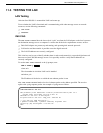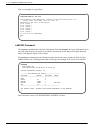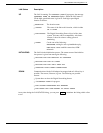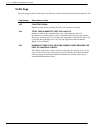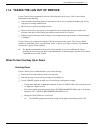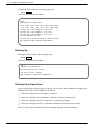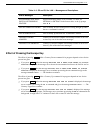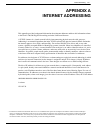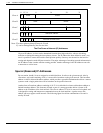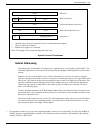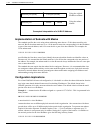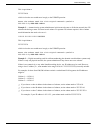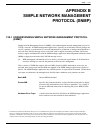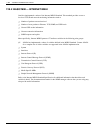
Internet Addressing 11A-1
Octel 200/300 S.4.1PB60019−01
APPENDIX A
INTERNET ADDRESSING
This appendix provides background information about internet addresses and how this information relates
to the OctelR 200/300 Digital Networking and other LAN-based features.
A TCP/IP* internet is a virtual network built by interconnecting physical networks with gateways.
Addressing is an essential ingredient that helps TCP/IP software hide physical network details and makes
the internet appear to be a single, uniform entity. For an Octel 200/300 to be able to talk to any other
system, a globally accepted method of identifying systems is needed. Often, host identifiers are classified
as names, addresses,orroutes.Aname identifies what an object is, an address identifies where it is, and a
route tells how to get there. Names, addresses, and routes really refer to successively lower levels of host
identifiers. In general, people usually prefer pronounceable names to identify machines, whereas software
works better with more compact binary representation of identifiers that we think of as addresses.
For addresses, the designers of TCP/IP chose a scheme analogous to physical network addressing in which
each host (or network connection) on the internet is assigned a unique 32-bit integer (4 bytes) IP address
that is used in all communication to the host. These integers are chosen so as to make routing efficient.
The bits of IP address for all hosts on a given network share a common prefix. Conceptually, each address
is a pair (netid, hostid), where netid identifies a network and hostid identifies a host on that network. In
practice, each IP address must have one of the first three forms shown in the following figure. For ease of
communication, IP addresses are written in the dotted decimal format with four decimal integers separated
by decimal points, where each integer gives the value of one octet of the IP address. Thus, the 32-bit address
10000000 00001010 00000010 00011110
is written
128.10.2.30
* Transmission Control Protocol/Internet Protocol. A set of communications protocols developed for the Defense Advanced Research Projects
Agency to internetwork dissimilar systems. It runs on a large number of computers and is supported by many hardware vendors from personal
computers to mainframes. It is used by many corporations and almost all American universities and federal organizations. The TCP protocol
controls the transfer of the data, and the IP protocol provides the routing mechanism.



